Successes to Applaud… but also: ‘What Keeps Him Up at Night’
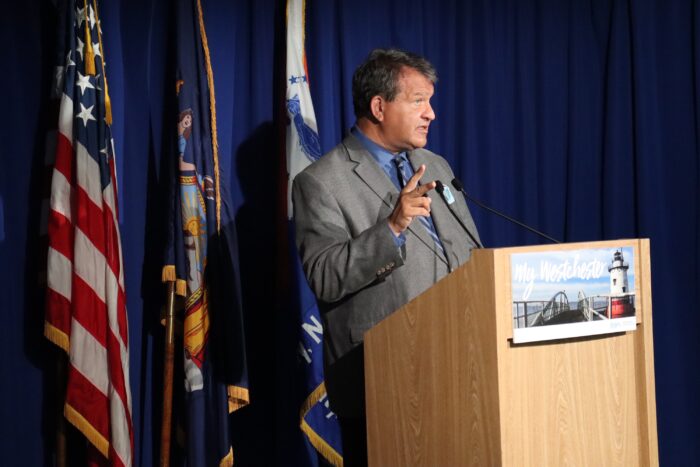
There’s something reassuring about talking to George Latimer. When we spoke on the phone in late July, the Westchester County Executive’s responses to my questions about Covid-19 were intelligent and thoughtful, qualities that the federal response has been sorely lacking.
Latimer doesn’t wear rose-colored glasses, but he is encouraged by the county’s response to date. “You hate to use that phrase cautiously optimistic, but we are in fact cautiously optimistic because the basic sense we have is that we’re doing ok with the strategies we’re using.”
Those strategies were tested in June with the Chappaqua outbreak during high school graduation season. The Westchester County Executive says Chappaqua was a cautionary tale, but overall, the system worked. “We’re not cocky about it, but the Chappaqua situation appeared to be handled well and while there were bumps along the road, nobody died, nobody was hospitalized, and we did not have an outbreak that reached triple digits.”
The rallies and marches following the murder of George Floyd were also a success story–over 30 of them in the county–all peaceful. And Latimer says most people wore masks at those events. The upshot? “We saw no spike that we could trace back to the rallies.”
Latimer finds hope in statistics as the county’s positive Covid-19 numbers flatten out, and in the behavior of his constituents. “I know mask wearing is not universal, but it’s more the norm than not. And I know that social distancing depends on the group and the circumstances, but we’re seeing better implementation of that.”
What keeps the man who oversees a county of close to one million residents up at night? Knowing that we can’t conquer the virus until we have a vaccine and anti-viral treatments. Until then, it’s going to be a challenge.
“We’re managing it as best as you can, but it can morph out of control at the snap of our fingers.”
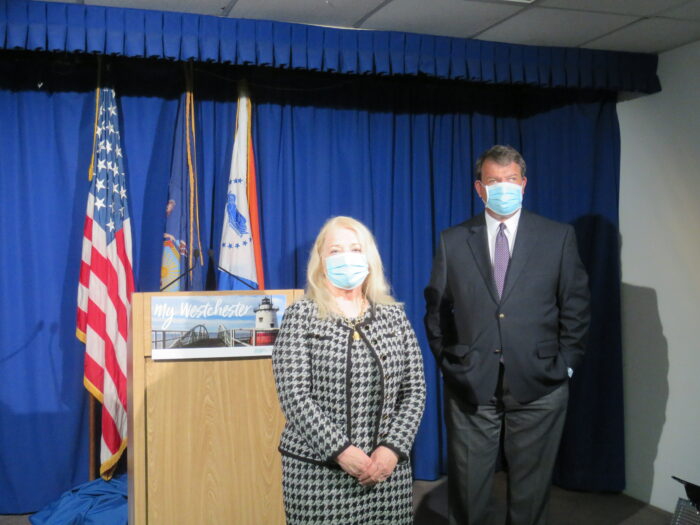
Failure from the Top
And he has little faith in the White House, which he says never took control of the pandemic.
Latimer says there are thousands of things President Trump could have done but didn’t. He says sure, he’s a Democrat and the president is Republican, so there will be differences in approaches. But he says it’s a matter of practical government.
He points out that the governors of Vermont, Massachusetts and Maryland–all Republicans–have done the right thing. But he says now, because President Trump didn’t lay out a comprehensive national plan, “we’re fighting a rearguard action, each state doing their own thing, and we’re trying to do our best. We’re trying to put this thing in our rearview mirror.”
That’s going to be difficult as long as some states are doing as poorly as they have been this summer, Latimer is concerned about how the divide in attitudes in the U.S., a divide that is often along political lines, is impacting the country, and could send Westchester moving in the wrong direction.
“You know that there’s a certain mindset in parts of the country that says, I’m not wearing a mask. I don’t want to do it, it’s restrictive, I don’t believe in it philosophically.” He adds, “When you start listening to that kind of rhetoric, I do get concerned because it flies in the face of our experience.”
School Concerns
And then of course, there are the concerns about school. As of this interview, the county’s schools were beginning to unveil their plans for the fall, but as every parent knows, it’s a frustratingly fluid situation and nothing is certain. Although the decision on whether schools can open rests with Governor Cuomo, the county is helping superintendents prepare for the fall and devising protocols for reopening. Latimer says the schools are counting on county government to provide certain services such as contact tracing, when needed.
I asked him what he’s been hearing from parents and teachers on the subject. He says there are two distinct lines of thinking.
“I think you’ve got a number of people who want to see the schools resume, kids back in class. They see the problems of kids who aren’t in structured learning situations, the disadvantages which that creates for poor kids or disabled children.”
On the other hand, he says, “We’re very concerned, the virus is not in control. It can spread through children and of course it could spread through every household or many households in Westchester because of the universality of K-12 education. Both of those things work against each other, and I don’t know if it’s 50-50 in the community, but those two points of view are expressed by different people all the time.”
Small Business Outlook
I asked the County Executive what he thinks the retail, restaurant and overall economic situation in Westchester will look like in the near future. He says we’ve lost businesses, and we will lose more. The county has put together a small grant loan program–$10,000 grants, $25,000 loans–as they understand that restaurants and other small businesses run on a very small profit margin and can’t afford to lose business for even a few months. And they have been giving out free PPE to businesses in the county. Latimer hopes that as more commerce can reopen, they will be able to save more restaurants, stores and other businesses from going under. That is a process that is not only going to affect businesses, but the county as well.
“We’re not going to fully reopen until we’re comfortable. And we’re going to suffer. We lose sales tax revenue, we lose hotel occupancy tax revenue, we don’t maximize the kind of parks revenue that we would normally get. So as a government, we have a big budget hole as many local towns and villages do, and the state does.”
One of the bigger challenges the country faces in light of Covid-19 is the upcoming election in November, and Latimer looks at it from two angles: what he and his staff have to do to make it all work in the county, and his concerns about what happens on the national level.
“In the county, we have our work cut out for us,” he says.
The county is working with the Board of Elections to make sure there is additional staff to mail out absentee ballots and increase the number of polling inspectors. He also says county workers will have off Election Day so they can increase staffing to open as many polls as possible.
“The number of people coming out for this election is going to be phenomenal. This is one of the most compelling elections of my lifetime. It may be the most compelling one.”
And this is where his concerns come into play about the national election. “I take for granted that the strategy should be that the greatest number of people vote in order to get the greatest inclusion in the final decision. But there are people who believe, for their political gain, that they don’t want the greatest number people to vote. They want to suppress the vote.”
Latimer says there are a thousand ways to make it hard for people to vote. He says the deployment of troops to Portland could be a tactic used in November across the country.
“Are they going to be deployed on Election Day? Are they going to show up in front of the polls in areas where the president’s opposition might be strong and their presence there is meant to dissuade people from voting?”
Never one to mince words, Latimer had a great deal to say on this subject. He insists that this is not an election anyone can afford to miss, and he encourages Westchester residents to vote early, in October.
“I don’t want to write a Stephen King novel, but the bottom line is I think that Americans are concerned that we don’t get a fair, free opportunity to express our opinion.” As for the result, he says every president in U.S. history has accepted election results. But now President Trump says he doesn’t know if he’ll accept the country’s decision.
“I don’t want to hear anybody, certainly not this guy, say I don’t know if I’ll accept it. That is an anti-American dictatorship-type of response and there is no place for it in a democracy.”
Does George Latimer think democracy will survive this period of our history? “What happens in the next six months,” he says, “will tell the tale.”
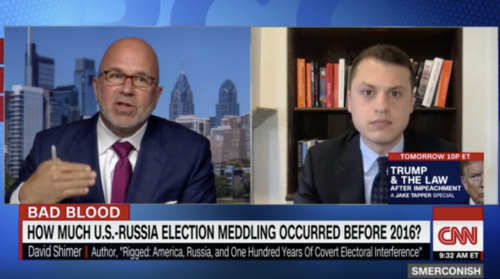
 The first is that Russia’s 2016 operation marked the evolution rather than the creation of a practice. For about a century, with brief interruptions, Moscow has been targeting elections all over the world, including in the United States. The KGB sought to interfere in America’s 1960, 1968, 1976, and 1984 elections, as I detail in my book, with tactics eerily reminiscent of Putin’s. Across these operations are patterns that can and should instruct our response to the Russia threat. The most basic one is that covert electoral interference always involves efforts to manipulate voters or to alter actual ballots. To defend an election is to defend against both forms of attack.
The first is that Russia’s 2016 operation marked the evolution rather than the creation of a practice. For about a century, with brief interruptions, Moscow has been targeting elections all over the world, including in the United States. The KGB sought to interfere in America’s 1960, 1968, 1976, and 1984 elections, as I detail in my book, with tactics eerily reminiscent of Putin’s. Across these operations are patterns that can and should instruct our response to the Russia threat. The most basic one is that covert electoral interference always involves efforts to manipulate voters or to alter actual ballots. To defend an election is to defend against both forms of attack.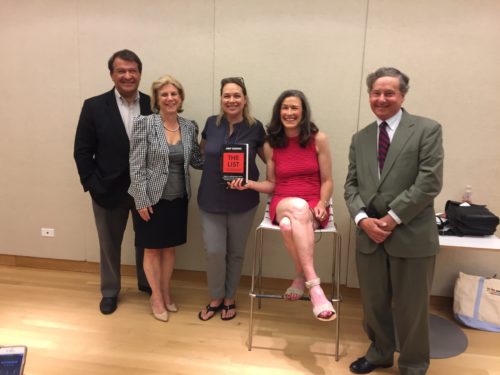
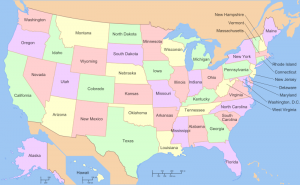 It seems ironic that many people who do not vote still feel they have a right to complain about policies undertaken by the government. I see nothing wrong with requiring this slight but very meaningful investment into the political process. Mandatory voting, having the whole of the public’s voice heard, would be good for the health and progress of a nation.
It seems ironic that many people who do not vote still feel they have a right to complain about policies undertaken by the government. I see nothing wrong with requiring this slight but very meaningful investment into the political process. Mandatory voting, having the whole of the public’s voice heard, would be good for the health and progress of a nation.
 Dr. Walsh has taught at Princeton University and Claremont McKenna College, and is now a professor of English Literature at Fordham University in New York. She is the editor of James Joyce’s Dubliners (Broadview Press, 2016) and The Letters of Sylvia Beach (Columbia University Press, 2010). Next year’s Chappaqua Summer Writing Program for Girls will take place at the Horace Greeley House in July. Please contact
Dr. Walsh has taught at Princeton University and Claremont McKenna College, and is now a professor of English Literature at Fordham University in New York. She is the editor of James Joyce’s Dubliners (Broadview Press, 2016) and The Letters of Sylvia Beach (Columbia University Press, 2010). Next year’s Chappaqua Summer Writing Program for Girls will take place at the Horace Greeley House in July. Please contact 